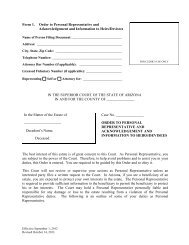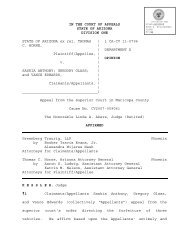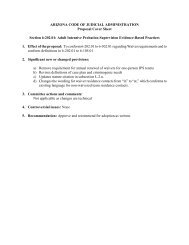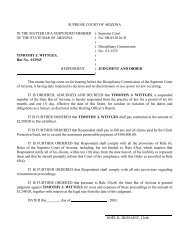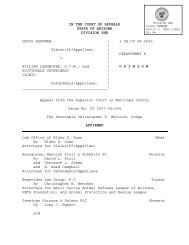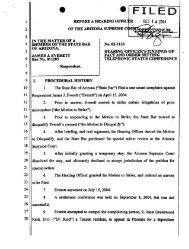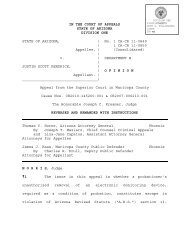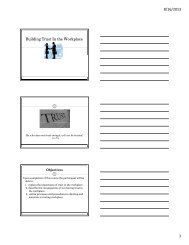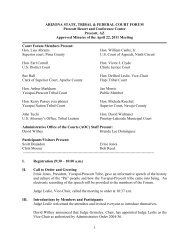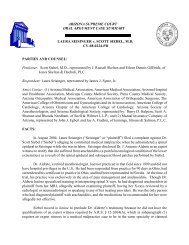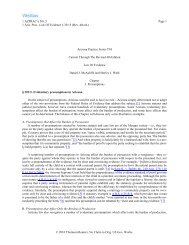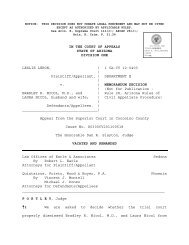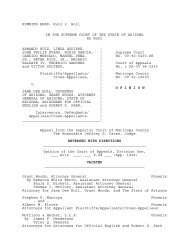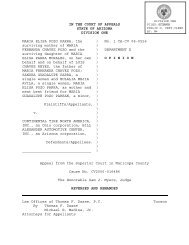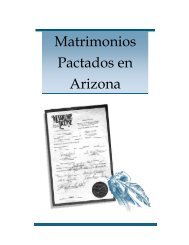State v. Rodriguez - Arizona Judicial Branch
State v. Rodriguez - Arizona Judicial Branch
State v. Rodriguez - Arizona Judicial Branch
You also want an ePaper? Increase the reach of your titles
YUMPU automatically turns print PDFs into web optimized ePapers that Google loves.
30 Defendant requested the following alibi instruction from<br />
the Recommended <strong>Arizona</strong> Jury Instructions (RAJI):<br />
The defendant has produced evidence of being absent<br />
at the time and place the alleged crime was committed.<br />
If you have a reasonable doubt whether the defendant was<br />
present at the time and place the alleged crime was<br />
committed, you must find the defendant not guilty.<br />
6<br />
See RAJI (Criminal) No. 12 (1989). Unlike a comment on the<br />
evidence, the requested instruction does not suggest to the jury<br />
that the evidence should lead them to any particular result.<br />
Rather, it reframes the burden of proof in the context of<br />
appellant’s alibi theory. 7<br />
6 The RAJI alibi instruction was revised in 1996. RAJI<br />
(Criminal) 11 now states:<br />
The state has the burden of proving that the<br />
defendant was present at the time and place the alleged<br />
crime was committed. If you have a reasonable doubt<br />
whether the defendant was present at the time and place<br />
the alleged crime was committed, you must find the<br />
defendant not guilty.<br />
This language more clearly reflects the instruction’s utility in<br />
redressing the risk of burden shifting. However, the revised<br />
instruction also includes an alternate paragraph, which retains the<br />
pre-1996 wording. The second paragraph of RAJI (Criminal) 11<br />
appears redundant and unnecessary when the jury properly receives<br />
the portion of the instruction quoted above.<br />
7 In <strong>State</strong> v. West, 176 Ariz. 432, 444, 862 P.2d 192, 204<br />
(1993), we cited article VI, section 27 of the <strong>Arizona</strong> Constitution<br />
in rejecting a challenge to a trial court’s denial of an alibi<br />
instruction. The court noted that “jury instructions are to be<br />
instructions on the applicable law, not comments on bits and pieces<br />
of evidence.” Id. Although we agree with this basic proposition,<br />
whether West should control this case is unclear because the<br />
opinion does not set forth the wording of the instruction. In any<br />
event, we overrule West to the extent it may be read as<br />
inconsistent with this opinion.<br />
14



